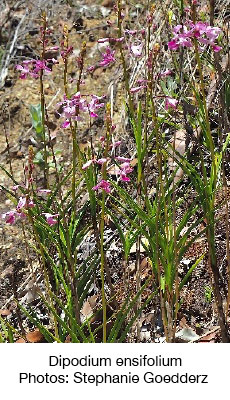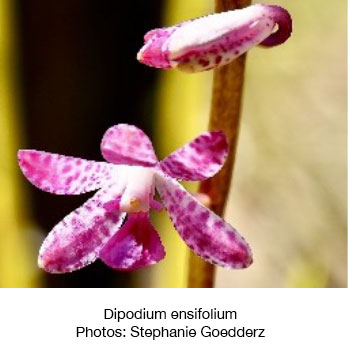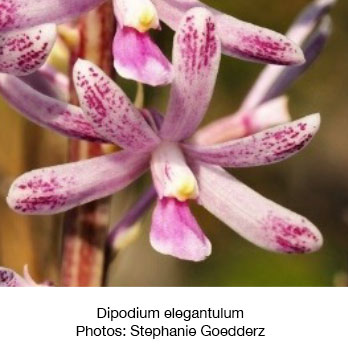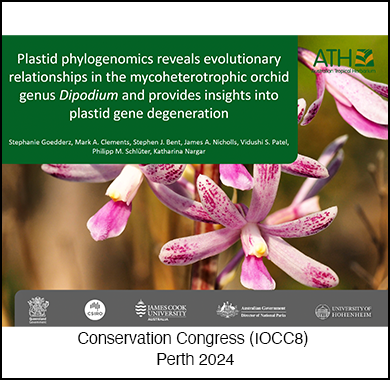<< BACK TO PROJECT LIST
Project: 357/2023
Title: Plastid phylogenomics reveals evolutionary relationships in the mycoheterotrophic orchid genus Dipodium and provides insights into plastid gene degeneration
Applicant: Stephanie Goedderz
Institution: Australian Tropical Herbarium, James Cook University, Cairns Qld 4878
Presentation at the Biosystematics Conference in Canberra in November 2023
Communicating research on the mycoheterotrophic orchid genus Dipodium
Heterotrophic plants – plants that rely on other organism for energy and nutrients – are remarkable survivors, exhibiting often curious morphological, physical, or genomic modifications, reflecting relaxed selective pressure on photosynthetic function. Plastid genomes (plastomes) of heterotrophic plants often exhibit significantly modified structure and gene content reflecting loss or degradation of photosynthesis-related genes.
The orchid genus Dipodium R.Br. (Cymbidieae) contains both (myco-) heterotrophic and autotrophic species, thus constituting a prime model system in which to address hypotheses of plastome evolution in a phylogenomic context. The genus comprises ca. 39 species and is divided in two sections, Dipodium and Leopardanthus (Blume) O. Kuntze, based on morphological and geographical evidence. Nearly all species within sect. Dipodium, including almost all mycoheterotrophic species (e.g., Dipodium elegantulum D.L.Jones) and one autotrophic species (Dipodium ensifolium F.Muell.) are endemic to Australia. Species of sect. Leopardanthus are typically distributed in tropical regions of Malesia and Australasia.
In my master’s research project “Plastid phylogenomics reveals evolutionary relationships in the mycoheterotrophic orchid genus Dipodium and provides insights into plastid gene degeneration” (Australian Tropical Herbarium and University of Hohenheim) I investigated molecular phylogenetic relationships, divergence times and plastid genome degeneration within the genus Dipodium based on genomic data. This AOF project will support me to present my master’s research to a wider scientific audience at the Biosystematics conference 2023: “Celebrating the past | Planning the future” in Canberra.






